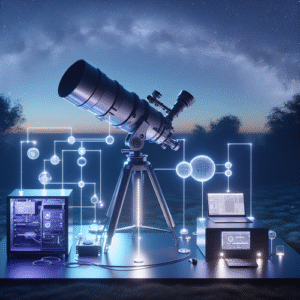When Memories Bend Time and Twist Reality
Exploring Solaris: The Enigmatic Dance of Rewritten Memories
Few science fiction films delve as deeply into the complexities of human memory and identity as Solaris. This cinematic masterpiece, adapted from Stanislaw Lem’s novel, invites viewers to confront the haunting enigma of rewritten memories—those subtle manipulations and regenerations of past experiences that blur reality and illusion. As the film unfolds, it challenges us to ask: how much of what we remember is truly ours, and what happens when memories are reshaped beyond our control?
The Plot: Memory, Identity, and the Mysterious Solaris
Solaris centers around Kris Kelvin, a psychologist dispatched to a space station orbiting the oceanic planet Solaris. The planet’s enigmatic ocean appears to possess consciousness, manifesting physical recreations of the crew’s lost loved ones. These visitors, emerging from rewritten memories, compel Kelvin to confront his own personal regrets and guilt.
– The planet acts as a mirror reflecting repressed aspects of each individual.
– The visitors are neither ghosts nor aliens but physical embodiments drawn from the subconscious mind.
– This creates a paradox where memories are no longer intangible but have tangible consequences.
This foundational plot device makes Solaris a profound meditation on human psychology—rewritten memories become not only central to character development but also to the thematic core of the film.
The Science Behind Rewritten Memories: Fiction Meets Theory
While Solaris operates primarily in science fiction, its portrayal of rewritten memories echoes cutting-edge neuroscience. Human memory is malleable, constantly reconfigured each time we recall an event. This concept, known as memory reconsolidation, suggests that every recollection can subtly rewrite itself.
Memory Reconsolidation and its Parallels with Solaris
– Memories are stored but vulnerable during recall, allowing them to be altered.
– Emotional states heavily influence memory modification.
– Solaris’ ocean mimics this by creating physical manifestations of Kelvin’s altered memories.
Additionally, in temporal paradox narratives, rewritten memories often explore the tension between subjective experience and objective reality. Solaris brings this to life by portraying rewritten memories in physical form, blurring the line between past and present, real and unreal.
Philosophical Implications of Rewritten Memories
Beyond science, Solaris challenges the notion of selfhood. If memories define identity, then altered or rewritten memories raise the question: who are we, and which version of our past defines us?
Philosopher Derek Parfit’s work on psychological continuity speaks to this perfectly—identity is not a fixed essence but a chain of overlapping memories that may shift and evolve. Solaris integrates this by showing how rewritten memories influence characters’ identities and decisions.
Rewritten Memories as Narrative Device in Solaris
Solaris uses rewritten memories not just as a thematic element but as a storytelling mechanism that advances the plot and deepens character development.
– The reappearance of Kelvin’s deceased wife Harey, formed from his rewritten memory, creates intense emotional conflict.
– The constant uncertainty regarding what is real blurs narrative clarity, mirroring how rewritten memories distort perception.
– Other crew members’ visitors reflect their own hidden guilt or unresolved trauma, underscoring the universality of memory’s fragility.
This innovative use of rewritten memories invites viewers to experience the story through the haze of uncertain recollections, reinforcing the psychological depth of the film.
Examples of Rewritten Memories Affecting Characters’ Arcs
1. Kelvin’s struggle with Harey’s identity represents his confrontation with grief and guilt rewritten into tangible form.
2. The crew member Dr. Sartorius is haunted by an enigmatic figure symbolizing his subconscious dread, showcasing subconscious memories transformed.
3. Snow’s disappearance and reappearance are framed through rewritings of communal memories aboard the station, raising questions about shared vs. individual memory.
Time Travel, Temporal Paradoxes, and Solaris’ Unique Approach
Though Solaris doesn’t feature time travel in the conventional sense, it reflects many elements common in temporal paradox stories—especially the effects of rewritten memories on perceived timelines.
– The ocean’s manifestations exist simultaneously with the timeline but arise from past memories, creating a temporal paradox.
– These beings disrupt linear time by resurfacing forgotten or altered moments, effectively collapsing past and present.
– This temporal dissonance creates an existential puzzle reminiscent of many time travel tales where rewritten histories cause paradoxical loops.
Unlike many temporal paradox narratives that use technology or time machines, Solaris represents a unique approach where memory manipulation creates temporal anomalies, inviting reflection on time’s subjective nature.
How Solaris Explores Temporal Subjectivity
– The film suggests subjective time is elastic, shaped by memory and emotion.
– The blurred boundaries between past and present emphasize how memory controls individual experience of time.
– Rewritten memories serve as temporal gateways, collapsing chronology into fluid moments.
These themes elevate Solaris beyond a simple sci-fi story to a powerful meditation on how rewritten memories and time intertwine to shape reality itself.
Visual and Auditory Symbolism Enhancing the Theme of Rewritten Memories
Solaris’ haunting cinematography and soundtrack play key roles in evoking the feeling of destabilized memory.
– Soft-focused imagery mirrors the hazy, unreliable nature of remembered experiences.
– Recurring motifs like water and reflection symbolize memory’s fluidity and distortion.
– Eduard Artemyev’s electronic score subtly blends organic and synthetic sounds, symbolizing the fusion of memory and alien consciousness.
Director Andrei Tarkovsky’s use of long takes and contemplative pacing also mimic the slow emergence and dissolution of rewritten memories, immersing audiences in a dreamlike state.
Iconic Scenes Illustrating Rewritten Memory Themes
– The poignant sequence where Harey reemerges amidst rain and subdued light emphasizes emotional resonance of rewritten memories.
– Kelvin’s interactions with physical objects linked to his past highlight the tangible hold of memory on reality.
– The final ambiguous moments leave viewers questioning whether memories or reality dominate experience.
Solaris’ Legacy: Influencing Time Travel and Memory Narratives
Solaris stands as a landmark in science fiction cinema, influencing later explorations of memory and time.
– Films like Eternal Sunshine of the Spotless Mind and Arrival echo Solaris’ exploration of rewritten memories and temporal perception.
– It set a standard for blending psychological exploration with science fiction elements to examine human consciousness.
– Solaris remains a reference point for storytellers grappling with the mutable nature of memory and identity.
For a deeper dive into Solaris and its impact on cinematic explorations of memory, resources such as [The Criterion Collection](https://www.criterion.com) offer extensive essays and commentary.
Reflecting on Rewritten Memories: What Solaris Teaches Us
Solaris masterfully reminds us that memories are not fixed archives but living, breathing narratives subject to constant rewriting. By embodying these rewritten memories physically, the film confronts the limits of understanding reality and self.
It invites viewers to reconsider how much our identities depend on memories and how fragile that foundation can be when memories shift. In a world where science increasingly explores ways to manipulate memories—through therapy, technology, or pharmacology—Solaris presciently raises ethical and existential questions still relevant today.
Whether you’re a fan of science fiction, philosophy, or human psychology, Solaris offers a rich experience steeped in the mysteries of rewritten memories and temporal paradoxes.
If you find the concept of rewritten memories as fascinating as the endless mysteries of space, why not revisit Solaris and explore its layers anew? Engage with communities who dissect sci-fi classics, or read Stanislaw Lem’s original novel to see how these themes evolved. The journey through memory’s labyrinth is one worth taking again and again.













Post Comment